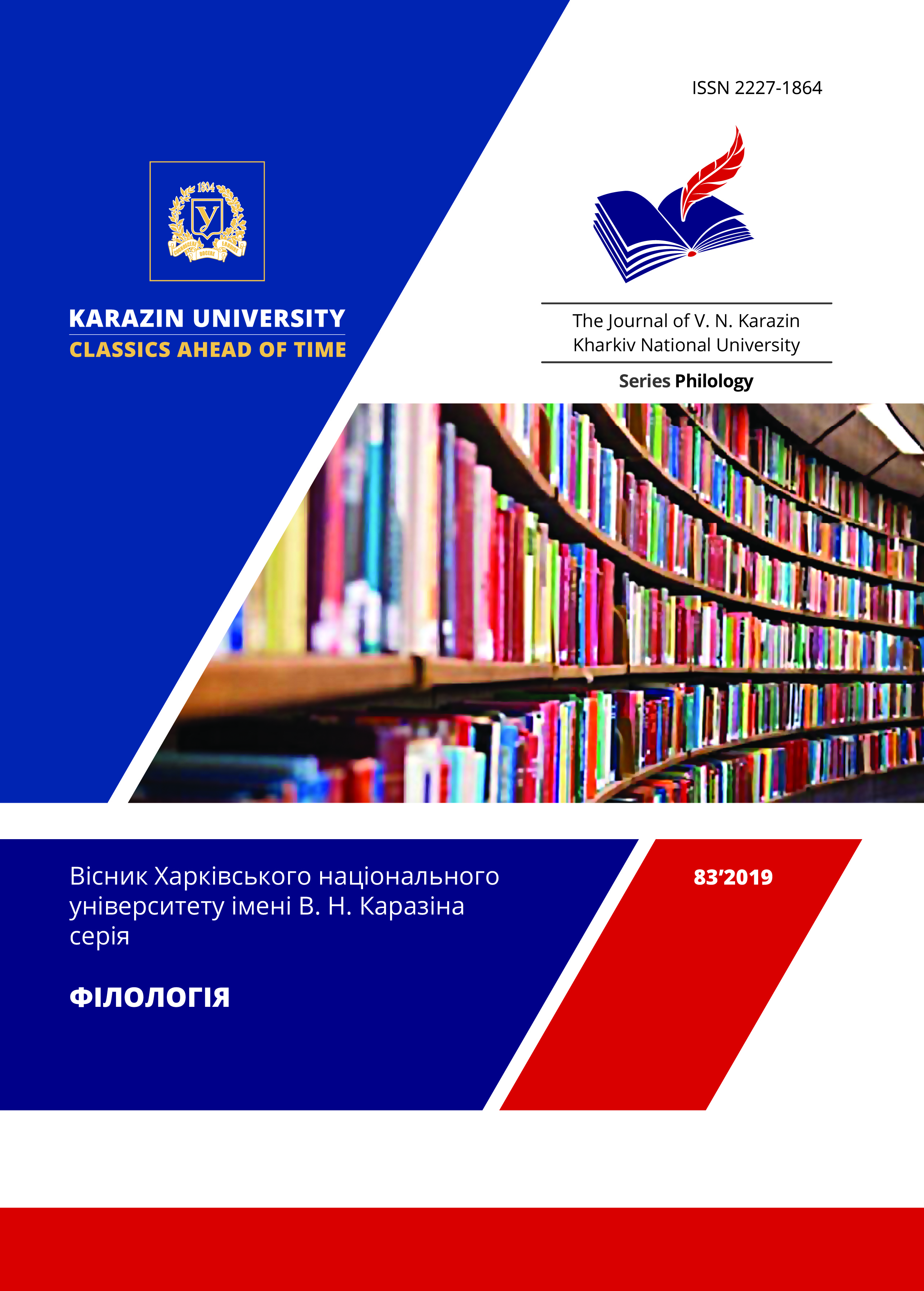Features of representation of Island Text in Tove Jansson’s story «The Summer Book»
Abstract
Features of representation of Island Text in Tove Jansson’s story «The Summer Book» studied in this article. Based on the work on the study and description of Local Texts, the phenomenon of Island Text is considered as supertext whole, the symbolic manifestation of the island, reflected in the work of the Finnish writer. The mythologeme of paradise, the motives of life/death, birth/wilting, growing up/aging and the specific «island mentality» of the heroes are highlighted as constitutional features of Island Text of the story.
It was found out that correlation of the image of paradise with the image of the island actualizes the mythologeme of paradise, which is central for the work and unites the motives of Island Text of the story. Exploration of this sacred paradise space leads to the regularization of the life of the islanders and their harmonious coexistence. On the other hand, the mythologeme of paradise, which is traditional for island literature, can be interpreted in a different way – childhood spent on the island-home become real paradise.
The motives of life/death, birth/wilting, growing up/aging are the main motives of Island Text of «The Summer Book», they are literally embodied in the images of a girl and a grandmother; nature in summer and nature in autumn. Thus, the mythological chronotope is realized, characterized by cyclicality and reproducibility.
It is shown that the «island mentality» of the heroes is determined by the concept of ours/stranger. The islanders obey their laws and reject the «others» who do not accept their ambivalent attitude. The topos of the sea is the natural border on the way to the island, associated with cosmogonic (water is a life) and with eschatological (water can bring a death) motives.
Downloads
References
Gornitskaya, L. (2012) Mifologema ostrova v russkoy literature: genezis, struktura, semantika [Mythologeme of the island in the Russian literature: genesis, structure, semantics]. PhD Thesis, Volgograd. [in Russian]
Mednis, N. Sverhtekstyi v russkoy literature [Supertexts in the Russian Literature]. [URL : http://rassvet.websib.ru/text.htm?no=35&id=7 [in Russian]
Morskaya, L. (2014) Simvolika ostrovnogo prostranstva v literature [Symbolism of Islands in Literary texts]. Izvestiya Saratovskogo universiteta. Seriya Filologiya. Zhurnalistika. V. 14. Ch. 3. pp. 112–115. [in Russian]
Safron, E. (2018) Mifologema ostrova v skandinavskom folklore [Mytholegeme of the island in scandinavian folklore]. Uchenyie zapiski Petrozavodskogo gosudarstvennogo universiteta. № 6 (175). pp. 41–45. [in Russian]
Soloveva, N. (2016) Osobennosti prostranstvenno-vremennoy organizatsii mifologicheskoy i skazochnoy kartin mira [The features of special-temporal organization of mythological and fabulous worldviews]. Filologicheskie nauki. Voprosyi teorii i praktiki. Tambov : Gramota, № 10 (64). Ch. 3. pp. 48–54. [in Russian]
Tsivyan, T. (2008) Antichnost. Yazyik. Znak. Mif i folklor. Poetika. [Antiquity. A Language. A Sign. Myth and folklore. Poetics.]. Moscow : Nauka. [in Russian]
Yansson, Tuve (2017) Lіtnya knizhka [The summer book]. Lvіv : Vidavnitstvo Starogo Leva. [in Ukranian]
Perynets, K. (2019) The phenomenon of provinciality in the creative activity of V. Makanin. Molodiy vcheniy. № 1 (65). pp. 396–399.




